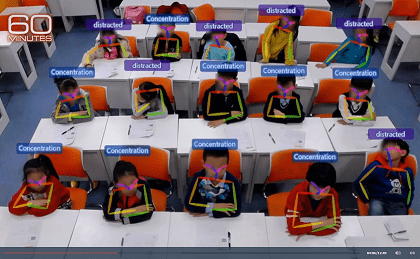Artificial Intelligence may be the key to empowering rural education and ensuring a future where no students get left behind.
At least that’s what venture capitalist Kai-Fu Lee believes.
The momentum behind Artificial Intelligence does not seem to be slowing down. Some of the biggest companies in the world are utilizing it: Google, Amazon, Facebook, Tesla.
According to Kai-Fu Lee, the best place to capitalize on AI is China. It’s there that he is known as the Oracle of AI. He is also a former employee of Google, Apple, and Microsoft.
 Source: CBS News
Source: CBS News
Speaking to CBS’ 60 minutes, he said most people around the world have no idea how quickly AI is advancing.
“I believe it’s going to change the world more than anything in the history of mankind. More than electricity.”
He has funded 140 AI start-ups. His Beijing venture capital firm has supported approximately ten one-billion-dollar companies.
In 2017, China’s technology markets received half of the global AI capital.
One of the major areas of AI emerging from China is recognition technology. This technology scans images and CCTV footage to identify everyday objects, as well as people.
As it turns out, Chinese educators have found a place for AI recognition systems in education.
TAL Education Group is investing in technology that detects emotions on human faces to determine their feelings. They tutor five million Chinese students across the country.
The beauty of this software is that it can pinpoint students who look lost or confused, so the teacher realizes they need extra attention. It can also pick out students who are gifted.
“It can also create a student profile and know where the student got stuck, so the teacher can personalize the areas where the students need help,” said Kai-Fu Lee.
Another one of his projects is the designing of software that sees some of the top teachers in China broadcast via the Internet to students in one of the most impoverished schools.
In 2010, approximately 70 million children in rural China were left behind by their parents, who were pursuing high-paying jobs.
Often these children are poor academic performers due to the lack of premium educational institutions in their rural communities. Most of these students don’t make it past ninth grade.
According to a study entitled ‘China’s Rural Education: Chinese Migrant Children and Left-Behind Children,’ the separation between child and parent has ‘substantial adverse effects on these youth’s development.’
Kai-Fu Lee said he hopes this new technology can give these children the same opportunities he had when he moved from Taiwan to the US.
 Source: CBS News
Source: CBS News
“When I arrived in Tennessee, my principal took every lunch to teach me English. And that is the kind of attention that I’ve not been used to growing up in Asia. And I felt that the American classrooms are smaller, encouraged individual thinking, critical thinking. And I felt it was the best thing that ever happened to me.”
This experience has led him to employ dozens of engineers to create education platforms to deliver the same quality of education he was privileged enough to receive.
The Internet has created the opportunity for educational institutions to broadcast their premium educators and content into rural communities.
In this way, AI could transform the education market.
However, while AI may be a game-changer for the education sector, its effect on jobs — if left unchecked — could be catastrophic.
Kai-Fu Lee believes up to 40% of the world’s employment could be displaced as AI overtakes repetitive jobs.
“Chauffeurs, truck drivers anyone who does driving for a living their jobs will be disrupted more in the 15 to 20-year time frame and many jobs that seem a little bit complex, chef, waiter, a lot of things will become automated we’ll have automated stores, automated restaurants,” he said.
But, it isn’t all doom and gloom. Lee believes that society will make the necessary plans to circumnavigate the adverse effects of automation. He concluded:
“Well, in some sense there is the human wisdom that always overcomes these technology revolutions. The invention of the steam engine, the sewing machine, electricity, have all displaced jobs. And we’ve gotten over it. The challenge of AI is this 40 percent, whether it is 15 or 25 years, is coming faster than the previous revolutions.”
Works Cited
“Facial and Emotional Recognition; How One Man Is Advancing Artificial Intelligence.” CBS News, CBS Interactive, www.cbsnews.com/news/60-minutes-ai-facial-and-emotional-recognition-how-one-man-is-advancing-artificial-intelligence/.
Lisa Yiu & Luo Yun (2017) China’s Rural Education: Chinese Migrant Children and Left-Behind Children, Chinese Education & Society, 50:4, 307-314, DOI: 10.1080/10611932.2017.1382128
